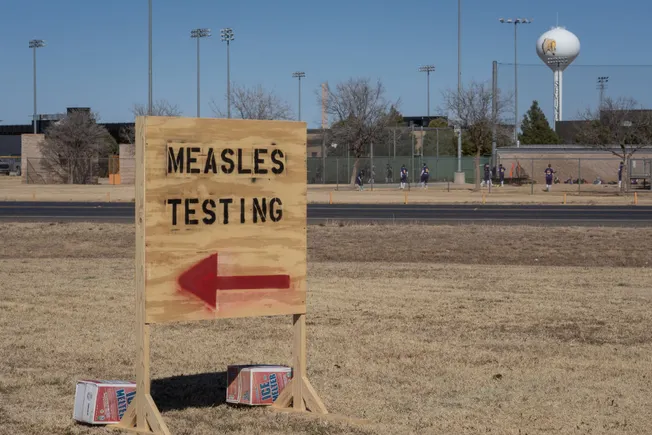The resurgence of the measles virus in the United States has raised concerns as cases continue to climb. With the CDC reporting 1,288 cases and 27 outbreaks across the country this year, the numbers are on track to potentially surpass the 1992 high of 2,126 cases. While infections are still below historic pre-vaccine levels, three people have tragically died from the virus in 2025.
Before vaccines were available, millions of Americans were infected with measles each year. However, with the introduction of vaccines in the 1960s, cases and deaths drastically decreased, eventually leading to the virus being declared “eliminated” in 2000. Despite this progress, the current outbreak is predominantly affecting unvaccinated individuals, with 92% of cases this year falling into the “unvaccinated or unknown” category.
In response to the outbreak, pharmaceutical companies are ramping up research and development efforts to find new treatments for measles. While there has been limited momentum in this area in the past, recent developments show promise for potential therapies.
One company making strides in the field is Invivyd, which announced a new discovery program for a monoclonal antibody that could potentially treat measles or provide post-exposure protection. With millions of unvaccinated individuals in the U.S. and globally, the need for effective treatments is high. Invivyd’s previous success with a COVID-19 monoclonal antibody has paved the way for their measles research.
NanoViricides is also exploring the use of nanomedicine for measles treatment, with their broad-spectrum antiviral candidate showing promise in lab tests. The company’s preclinical effectiveness against respiratory syncytial virus (RSV) suggests it could be effective against measles as well.
Academic institutions are also joining the effort to develop new measles treatments. Vanderbilt University Medical Center, in collaboration with Parse Biosciences, is working on a single-cell “atlas” to identify new antibody treatments for measles, mumps, and rubella. By sequencing millions of cells, researchers hope to uncover potent antibody lineages that can inform vaccine design and improve immunization strategies.
The push for new measles treatments reflects the urgency of the current outbreak and the need to protect public health. As pharmaceutical companies and researchers continue to innovate in this area, there is hope that effective therapies will soon be available to combat the resurgence of this once-eliminated virus.


